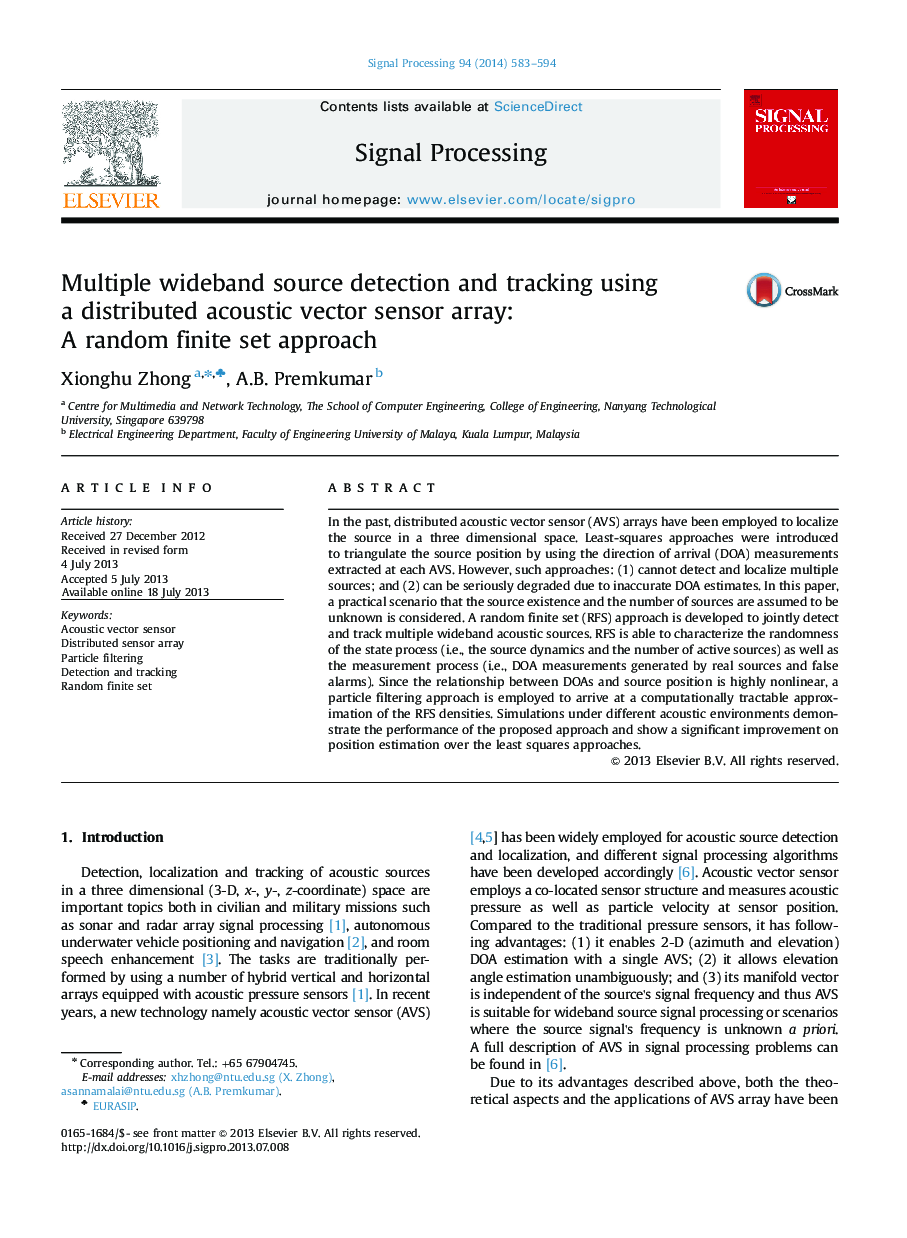| Article ID | Journal | Published Year | Pages | File Type |
|---|---|---|---|---|
| 566488 | Signal Processing | 2014 | 12 Pages |
•A problem of multiple wideband source detection and tracking using a distributed acoustic vector sensor array was considered.•We developed a random finite set based particle filtering approach to jointly detect and track multiple sources in 3-D space.•We examined the performance of proposed algorithm under different noisy environments and different number of snapshots.•Simulation results demonstrated the performance of the proposed approach and showed a significant improvement on position estimation over the least squares approaches.
In the past, distributed acoustic vector sensor (AVS) arrays have been employed to localize the source in a three dimensional space. Least-squares approaches were introduced to triangulate the source position by using the direction of arrival (DOA) measurements extracted at each AVS. However, such approaches: (1) cannot detect and localize multiple sources; and (2) can be seriously degraded due to inaccurate DOA estimates. In this paper, a practical scenario that the source existence and the number of sources are assumed to be unknown is considered. A random finite set (RFS) approach is developed to jointly detect and track multiple wideband acoustic sources. RFS is able to characterize the randomness of the state process (i.e., the source dynamics and the number of active sources) as well as the measurement process (i.e., DOA measurements generated by real sources and false alarms). Since the relationship between DOAs and source position is highly nonlinear, a particle filtering approach is employed to arrive at a computationally tractable approximation of the RFS densities. Simulations under different acoustic environments demonstrate the performance of the proposed approach and show a significant improvement on position estimation over the least squares approaches.
